What you need to know before you Boondock
December 1, 2023 | Gwendolyn Call
What you need to know before you Boondock!
So what do you need to know before you boondock? Let us answer that for you. Once you have completed your Solar Power System you will probably be eager and excited to put it to use. Before you hit the open road for those picture worthy views you will need to be prepared. The detail, planning and preparedness behind boondocking is what will make it or break it for you. You must imagine you would not just hop on a plane to a destination with no bags packed. You would pack, prepare, and get ready!
Preparing your RV goes beyond just having your Solar Power System ready to go. Knowing what your limitations are with said system will be key. You also have a whole set of other factors that come with boondocking besides just power. Depending on your length of stay you will need to explore and understand your water consumption, what you can use in your RV, factor in weather and location just to name a few.
What can my Solar Power System run? This will of course be different for every RVer but there are some general items that can and cannot be used with just your standard Solar Power System. What you will typically find in your standard system is you can run your lights, refrigerator, igniter for a gas oven/stove and (in the modern units) several outlets designated as “Inverter” outlets allowing for small devices. One thing to note, is that under MOST power systems the AC/Central Heat is not one of these items. Make sure you are prepared for cold or hot nights if boondocking is on your travel plans.
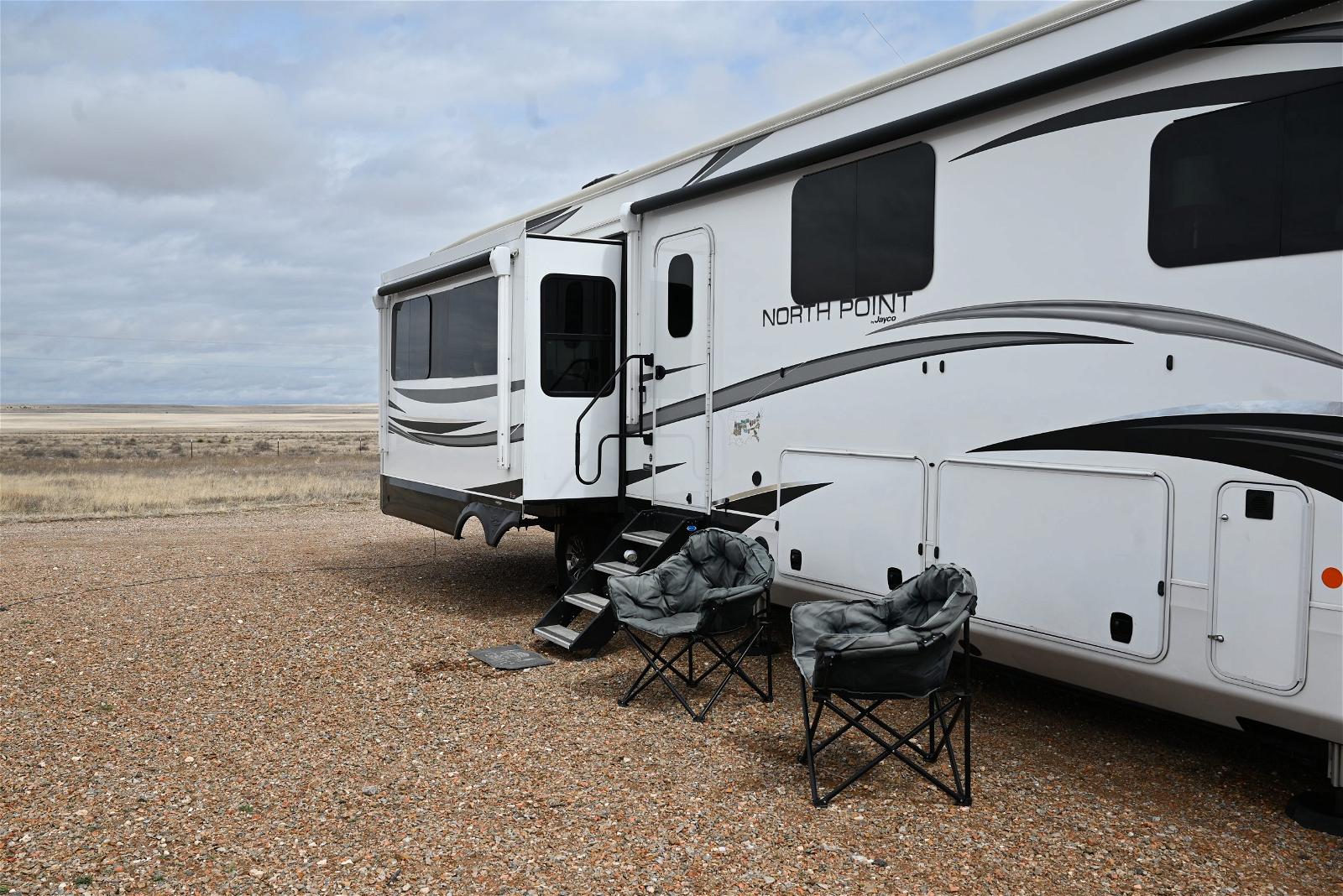
True boondocking is the ability to set up anywhere
The million-dollar question, what can I run in my RV while boondocking? Can I charge my phone? Make my coffee? Use my air fryer? If Boondocking is your thing, you will want to make sure you understand the power usage of your favorite items. The more power they consume the less time you can spend away from shore power.
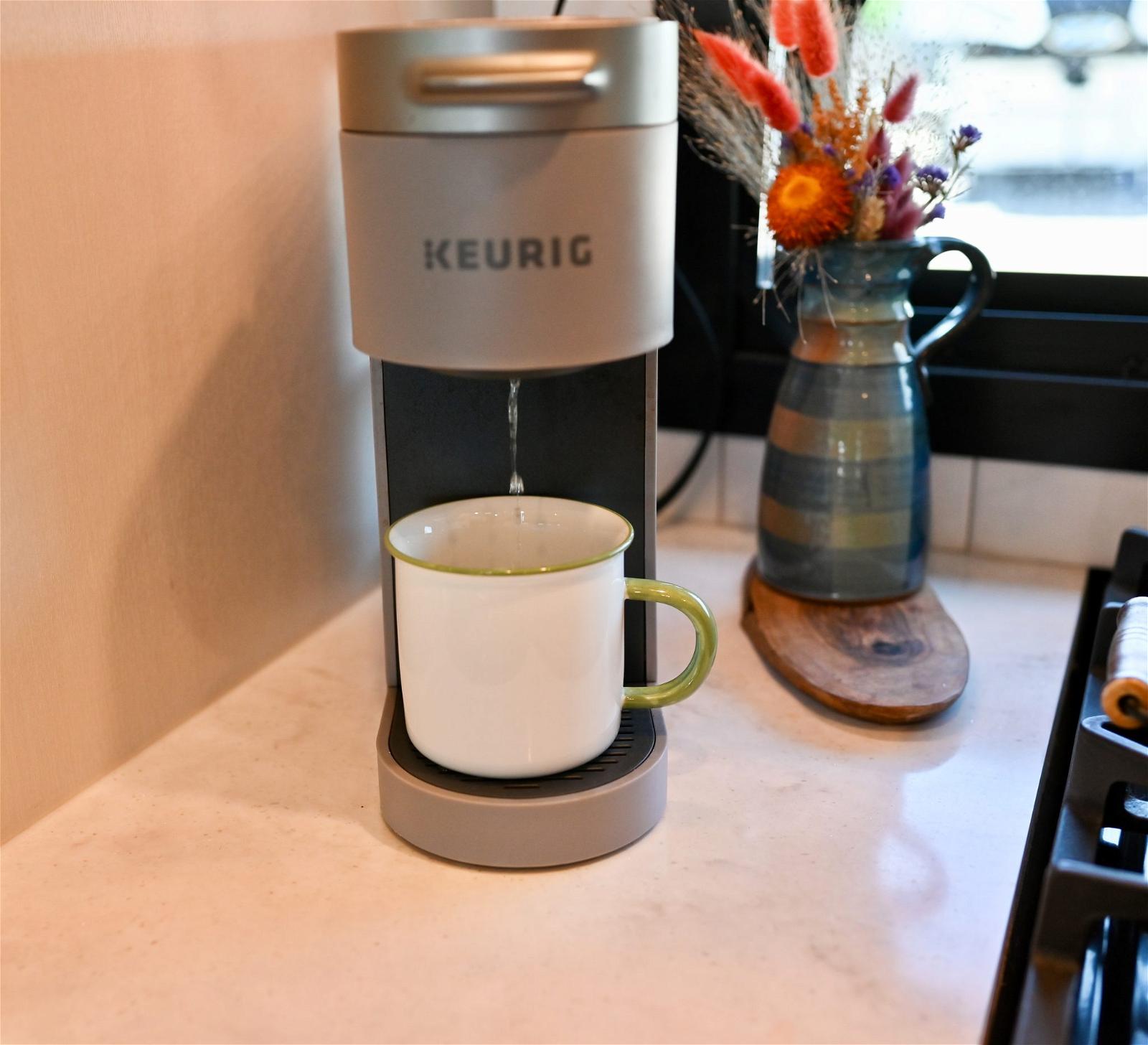
Power draws on Coffee Makers are huge. Keep this in mind when you plan for usage
For example, our Keurig coffee maker is one of our most popular items, however we did not know this initially, it is a MAJOR power hog, so we use it sparingly when not on shore power. Laptop charging, phone charging and other small devices should be ok if you are being supplied with good sunlight to regenerate power.
Water is such a huge part of our lives. I was unclear of just how much water we wasted as a family of 5 on a daily basis. From letting the water just run while you brush your teeth, water endlessly running while washing dishes or our children leaving the water running after washing their hands. You really have no concept of just how much water you use. In most modern RVs you will find that they have large capacity freshwater tank that can be pre-filled. The larger the rig, the larger the tank. Using standard water conservation practices (turning off water while scrubbing dishes, brushing teeth, washing hands) our family can go approx. 3 full days with a full freshwater tank.
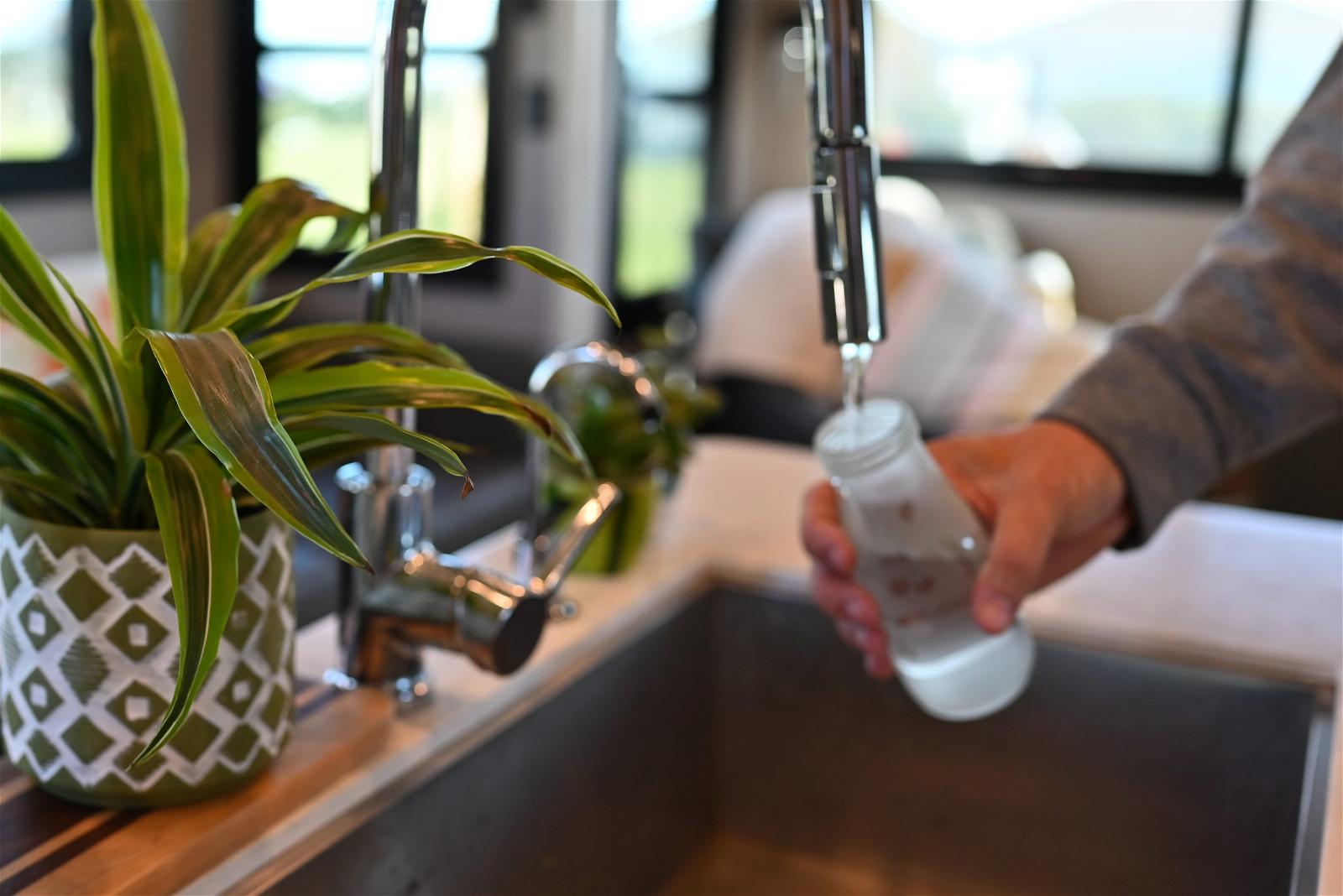
Leaving the hot water running will cause the hot water heater to run consistently and use more power
Batteries are the true backbone to any Solar Power System; we have the Dakota Lithium LifePO4 batteries and truly they have made all the difference for us as a fulltime RV family that loves to boondock. It allows us the flexibility to still run the appliances we need as a larger family. Batteries store your power. They are instrumental in the success of your system, this is one area that you want to make sure is functioning properly before you venture beyond those full-hook up RV sites.
Kitchen preparedness is huge! I cannot stress this enough, your food, how you cook, and how you clean up will be a huge part of how successful you are for your boondocking experience. The kitchen always tends to have a snowball effect. For example, if you cook with dishes that need to be washed you will start to deplete your water supply. Likewise, if you need an appliance to cook with, you may not have the battery power to run that appliance. So, for these reasons and more I have a few “must do” recommendations. Always use disposable plates silverware, napkins and really anything you can get your hands on. I cannot stress enough just how much this will simply help your kitchen time while your boondocking.
You will also want to be prepared with meals and know what appliances can work while you are boondocking. Personally I love to meal prep for these times, and I encourage you if you have an outside grilling option, use it! Embrace your time with all the outdoor cooking fun that you can, it will help with dishes, water consumption and using your electric power.
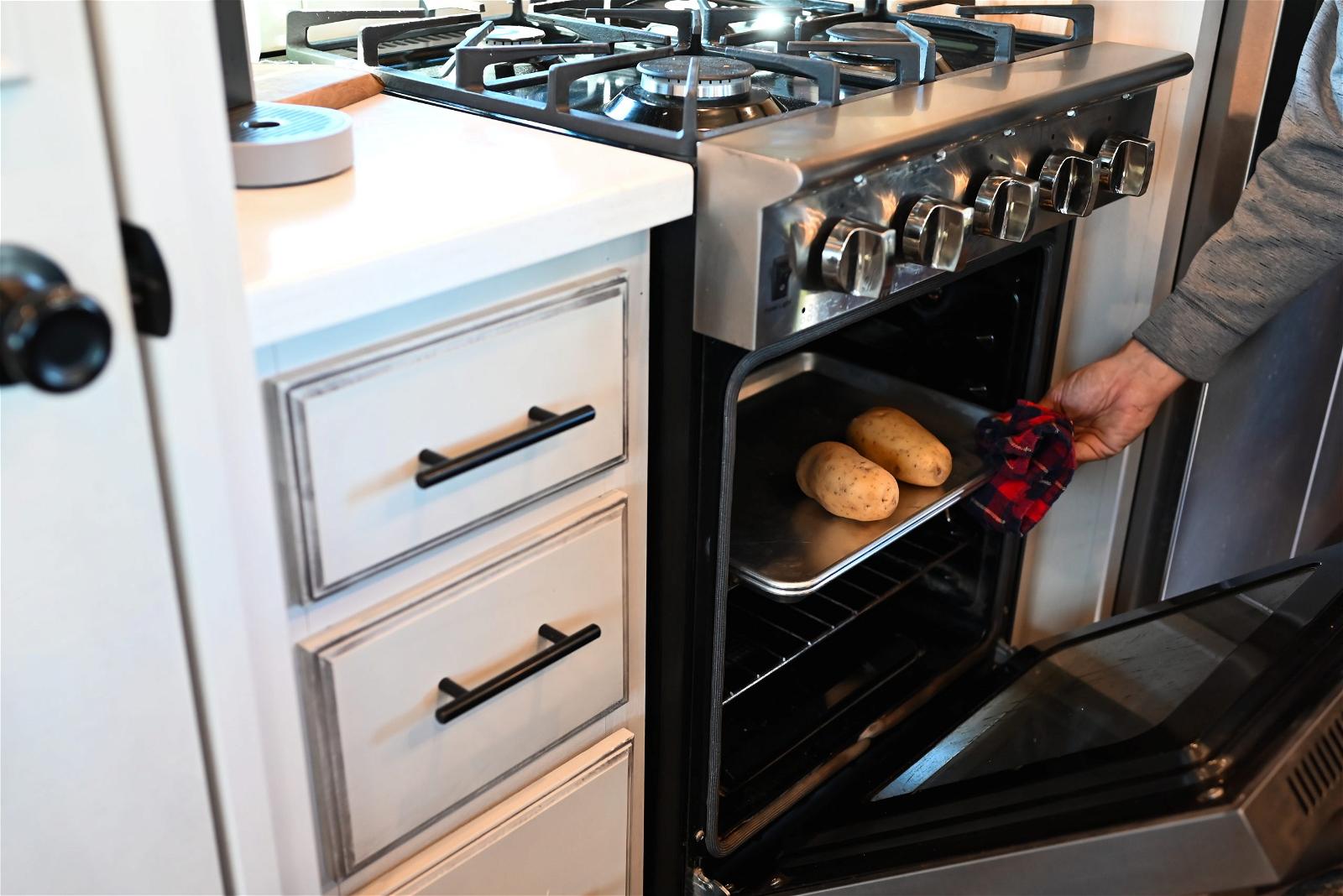
Baking Potatoes in out mini oven
Weather is a huge factor when considering boondocking. As we all know weather can be very unpredictable, you can prepare as best as you can to mitigate any glaring reasons to not visit a destination. For example, Tucson Arizona in August with temperatures over 100 degrees may not be your best option. A location for those winter months with snow, it may be a struggle to keep your unit warm. What about those rainy dreary days in some states, how could you possibly keep your solar panels charging. These are some of the more obvious reasons to stay away from locations but what about the less obvious ones, when you plan a trip, and the weather just does not cooperate.
These are the times you will want to be flexible in RV life and possibly pivot to a plan B. Which leads me to my next point, always have a plan B back up option. Weather can also drastically effect some of these locations. They are all likely off the beaten path. Most of the timethey are on dirt or gravel, snow or rain can drastically effect navigating those areas.
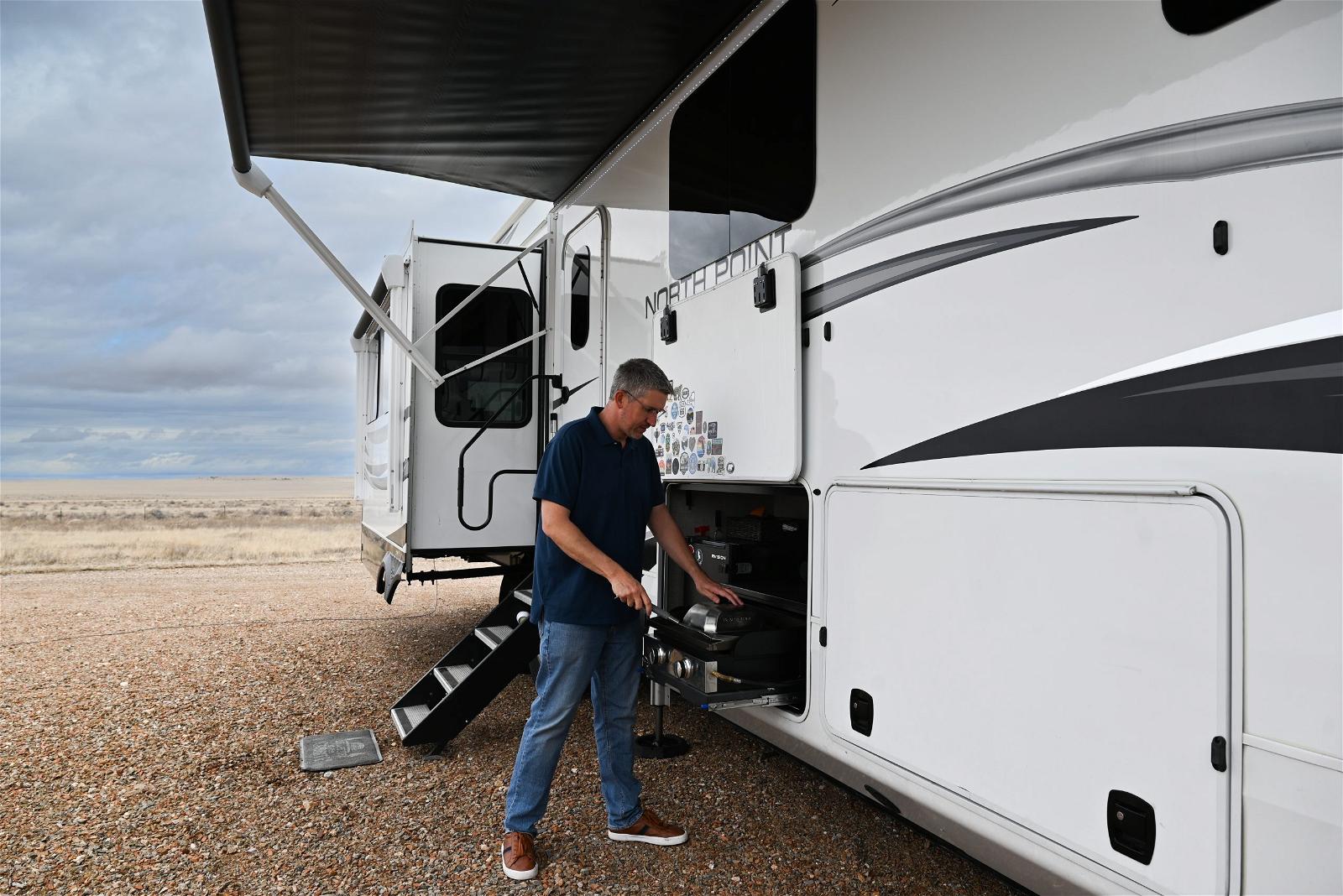
Grilling while boondocking
Do not forget to do your homework and research your location. Social media has done more than just provide pretty pictures for viewers to see. Social media for the RV industry particularly has helped guide us as community in sharing tips and locations for those hard-to-find locations. One of my favorite couples to follow when it comes to boondocking is, @travelinthoms. They share some of the most breathtaking locations to adventure to with your RV. Remember to read reviews, ask questions, and lean on your fellow RV community to help guide you. After all you are bringing your home into these remote locations.
Happy Adventuring,
Gwendolyn from Chaos Kiddos & Harmony